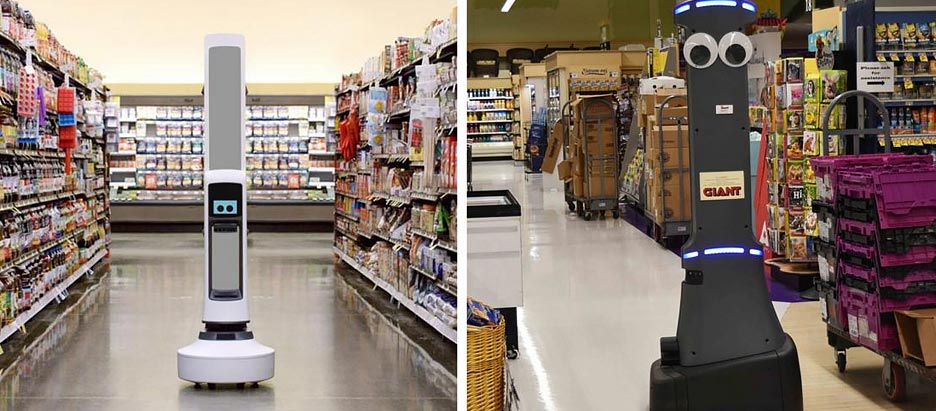Are Robots the Future of Grocery Stores?

The evolution in the food retail industry as we know it has completely changed over the past few months. E-commerce stores have shot up, automation has been widely adopted in the food retail industry to keep up with the demands of consumers and technology has significantly impacted our industry for the better.
Now, with the proliferation of intelligent machines in the food retail industry hoping to improve operations, are robots the future of grocery stores? Here are some of the reasons why they may be:
Addition to Your Workforce
Investing in robots for retail operations free up store associates on tasks that are labor-intensive, manual, and repetitive so they can focus on serving customers. Instead of store associates transporting loads of products from storage to merchandise shelves, robots can do such tasks more efficiently and effectively. For groceries that have an e-commerce platform, robots help in packing and sorting products for delivery. It basically speeds up the whole fulfillment cycle as well as in long run, improves your overall store performance and bottom line.
Overt Sanitation
Autonomous Mobile Robots (AMR) are making a huge wave in the industry today. They are intelligent machines that could deliver critical tasks in your store such as sanitizing and cleaning your store’s space. Brain Corp, an AI company based in San Diego, is changing the game when it comes to store cleanliness with its autonomous cleaning robots or robotic floor scrubbers. Requiring no custom infrastructure setup or specialized training, the scrubbers are more efficient than human operators.
In the time when cleanliness matters more than ever before for customers, cleanliness is the all-important element. And, showing customers that you value cleanliness more than anything else through robotic floor scrubbers, give them the reassurance and confidence in visiting your store.
Real-Time Data
Robots allow store associates to focus on customers and while they handle the rest – like pricing and inventory management. Shelf-scanning robots, which scan aisles and shelves, send accurate real-time data to store employees which helps them make informed decisions. The scanning robots pass through aisles and look for out-of-stock items, incorrect product pricing, and missing labels. The data collected is sent back to store associates for them to make necessary adjustments like refilling products that are out-of-stock or correctly putting price tags on shelves/products that have incorrect pricing. This makes sure that products are there where your customers need it and when they need it, leading to better customer experience. Are we replacing human workers with robots? No. Robots cannot replace the in-person interaction in retail stores, at least not in the near future; however, they do accomplish critical tasks efficiently and effectively. And, when partnered with the right strategies, robots could propel grocery stores to hitting their targets and bottom line.